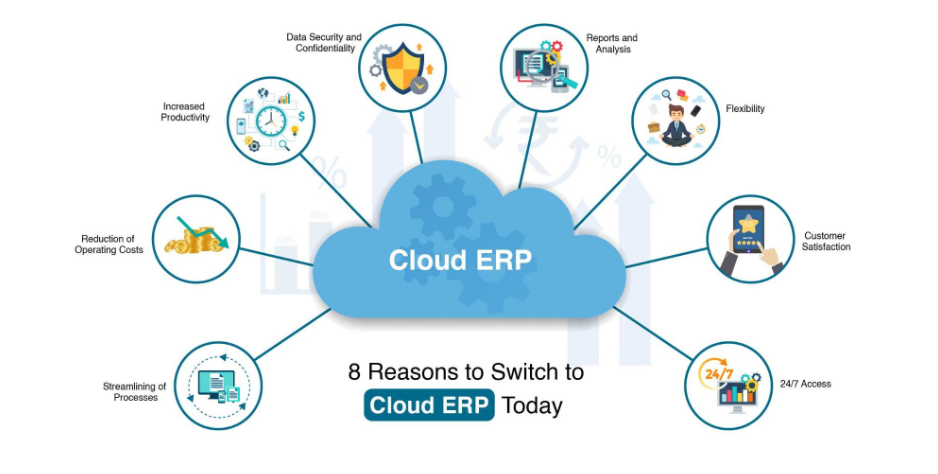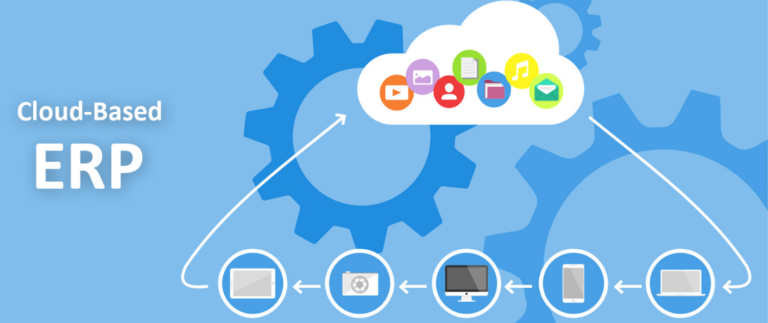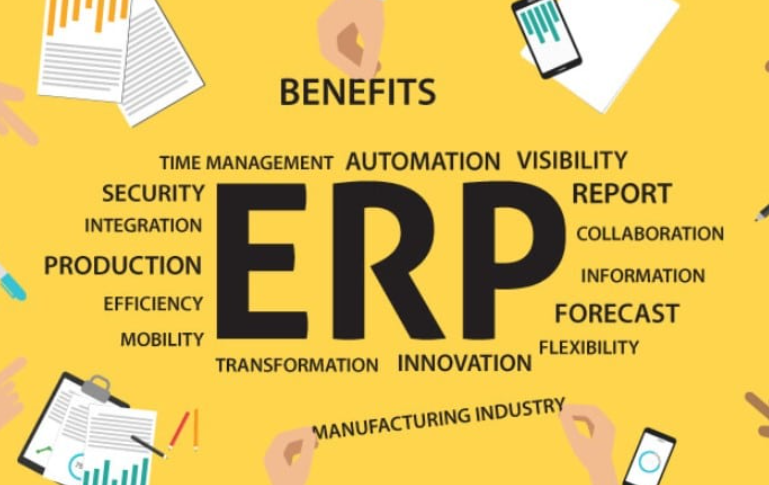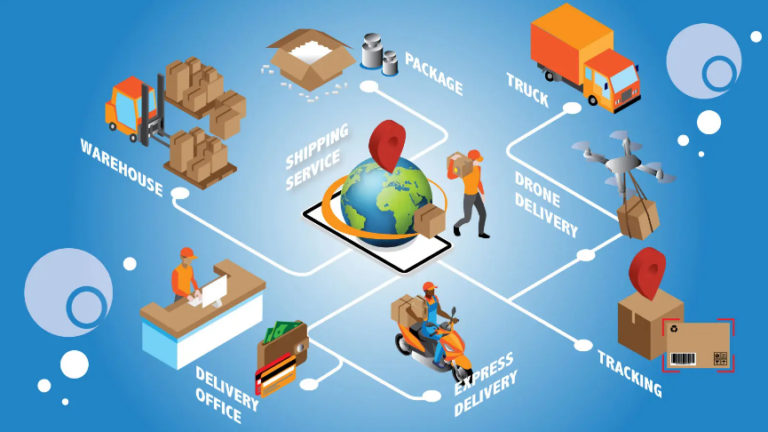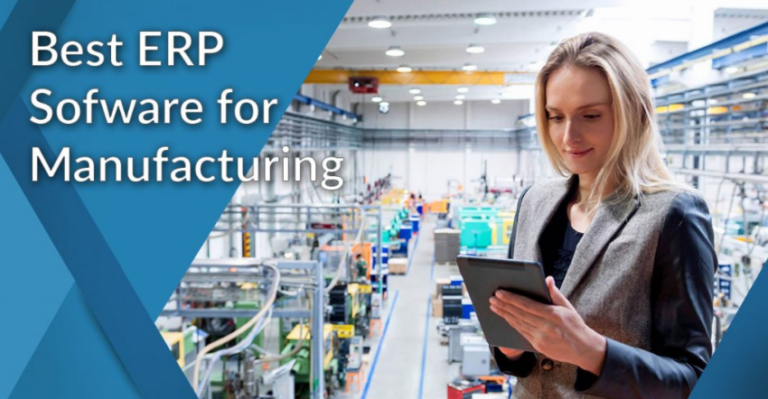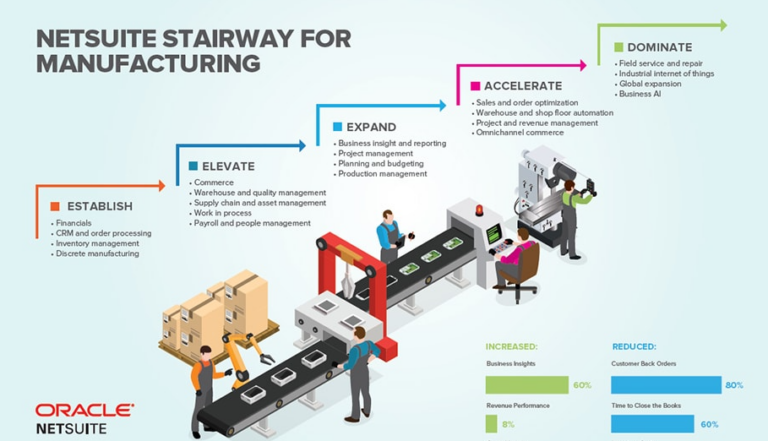In today’s fast-paced, technology-driven world, the manufacturing sector increasingly relies on ERP (Enterprise Resource Planning) systems to streamline operations and optimize production. Cloud-based ERP solutions offer manufacturers flexibility, scalability, and cost-effectiveness like never before. Below, we explore the top cloud manufacturing ERP products, their benefits, use cases, and purchasing details.
What is Cloud Manufacturing ERP?
Cloud manufacturing ERP is a system hosted on cloud servers, allowing manufacturers to manage various operations such as production, inventory, supply chain, and finance from anywhere with an internet connection. Unlike traditional on-premise ERP systems, cloud ERP reduces the need for physical infrastructure, offering flexibility and lower upfront costs.
Cloud ERP systems integrate various business processes into a single platform, helping manufacturers increase productivity, reduce downtime, and make informed decisions. The demand for cloud ERP is growing due to its scalability, especially for manufacturers looking to expand or pivot quickly.
Benefits of Cloud Manufacturing ERP
Cloud manufacturing ERP offers a range of advantages for businesses of all sizes. Here are the key benefits:
Flexibility and Scalability
Cloud ERP allows companies to scale operations up or down depending on business needs. Whether you’re a small manufacturer or a large enterprise, you can easily adjust your cloud ERP system to accommodate business growth or market changes without significant hardware investments.
Cost-Effectiveness
One of the primary benefits of cloud ERP is the reduction in upfront costs. There’s no need for expensive servers or hardware, and you avoid the high costs associated with on-premise software maintenance and upgrades.
Real-Time Data Access
With cloud ERP, manufacturers can access real-time data across different departments. This feature allows for better decision-making, faster response times, and improved coordination between departments, ensuring smooth operations.
Enhanced Security and Backup
Cloud ERP providers offer high-level data security, with frequent updates, backups, and 24/7 monitoring. This ensures that sensitive information is protected against data breaches, malware, and other security threats.
Top Cloud Manufacturing ERP Solutions
Below are some of the top cloud ERP solutions designed specifically for manufacturers. Each offers unique features, pricing, and capabilities that cater to different use cases.
Insert image of the product: Oracle NetSuite Manufacturing ERP
Oracle NetSuite is one of the leading cloud-based ERP solutions for manufacturers. It is known for its robust functionality, scalability, and seamless integration with other business processes.
- Features: Real-time visibility, production management, financial planning, supply chain optimization, and CRM integration.
- Use Case: Best for medium to large manufacturers who need real-time insights and control over complex production and supply chain operations.
- Pros: Highly scalable, extensive customization, integrated financial tools.
- Cons: Expensive for small businesses, steep learning curve.
- Price: Pricing varies based on the size of the business and specific needs. You can contact Oracle for a custom quote.
- Where to Buy: Buy Oracle NetSuite on their official website.
Insert image of the product: SAP S/4HANA Cloud ERP
SAP S/4HANA is another powerful ERP solution designed for large enterprises, with a specific focus on manufacturing.
- Features: Advanced analytics, machine learning capabilities, real-time production planning, and financial management.
- Use Case: Ideal for large-scale manufacturers that require advanced analytics and automation for process optimization.
- Pros: Excellent automation capabilities, real-time analytics, industry-specific modules.
- Cons: Expensive, complex to implement.
- Price: Pricing is custom and based on business requirements.
- Where to Buy: Buy SAP S/4HANA directly from SAP’s official website.
Insert image of the product: Infor CloudSuite Industrial (SyteLine)
Infor CloudSuite Industrial is a comprehensive cloud ERP system tailored for manufacturers of all sizes, particularly those in the discrete manufacturing sector.
- Features: Production scheduling, inventory management, financial management, and customer relationship management.
- Use Case: Ideal for small to mid-sized manufacturers that need industry-specific features and rapid deployment.
- Pros: User-friendly interface, quick deployment, industry-specific functionality.
- Cons: Limited customization options compared to larger ERP solutions.
- Price: Pricing depends on the number of users and modules required. You can request a quote from Infor.
- Where to Buy: Buy Infor CloudSuite from the Infor website.
Insert image of the product: Plex Manufacturing Cloud
Plex Manufacturing Cloud is a cloud-based ERP solution specifically built for the manufacturing industry, offering real-time production and quality control.
- Features: Production management, supply chain management, quality control, and financial management.
- Use Case: Best for manufacturers that need real-time production tracking and robust quality control features.
- Pros: Focus on manufacturing, real-time tracking, easy integration with other tools.
- Cons: Limited third-party integrations, not ideal for non-manufacturing businesses.
- Price: Contact Plex for pricing details.
- Where to Buy: Buy Plex Manufacturing Cloud from their website.
Insert image of the product: Acumatica Cloud ERP
Acumatica Cloud ERP is a flexible and affordable option for manufacturers, offering a range of modules that cater to various industries, including manufacturing.
- Features: Inventory management, production control, financial management, and customer relationship management.
- Use Case: Ideal for small to mid-sized manufacturers looking for an affordable yet comprehensive ERP solution.
- Pros: Cost-effective, easy to use, strong customer support.
- Cons: Limited advanced features compared to more expensive solutions.
- Price: Acumatica offers tiered pricing based on the number of users and selected modules.
- Where to Buy: Buy Acumatica Cloud ERP from the official website.
How to Buy the Right Cloud Manufacturing ERP
When selecting a cloud manufacturing ERP, consider the following factors:
- Business Size and Needs: Larger enterprises may need advanced features like machine learning and complex analytics, while smaller businesses might prioritize affordability and ease of use.
- Customization Options: Ensure the ERP system can be customized to meet the specific needs of your manufacturing processes.
- Pricing and Licensing: Many ERP providers offer subscription-based models, so assess your budget and determine if the ongoing costs align with your business goals.
- Implementation and Support: Choose a provider that offers strong customer support, particularly during the initial implementation phase.
Where to Buy: You can purchase these cloud manufacturing ERP solutions directly from the provider’s websites. Most offer custom pricing and demos to help you make an informed decision.
Use Cases and Problem-Solving Capabilities of Cloud Manufacturing ERP
Cloud manufacturing ERP systems help solve a variety of challenges faced by manufacturers, including:
- Inventory Management Issues: Real-time tracking helps manufacturers avoid overstocking or stock shortages.
- Production Downtime: Cloud ERP helps monitor and manage production schedules, reducing downtime and improving overall efficiency.
- Supply Chain Disruptions: These systems provide transparency across the supply chain, allowing businesses to identify bottlenecks and mitigate disruptions.
- Data Fragmentation: By centralizing all business processes, cloud ERP eliminates data silos, making it easier for departments to work together and share insights.
FAQs
1. What is the difference between cloud ERP and on-premise ERP? Cloud ERP is hosted on the provider’s servers and accessed via the internet, while on-premise ERP is hosted locally. Cloud ERP offers more flexibility, scalability, and lower upfront costs.
2. How long does it take to implement a cloud manufacturing ERP system? The time it takes to implement a cloud ERP system varies depending on the size of your business and the complexity of your processes, but it typically takes between 6-12 months.
3. Can small manufacturers benefit from cloud manufacturing ERP? Yes, small manufacturers can benefit significantly from cloud ERP systems due to their flexibility, affordability, and ability to scale as the business grows.
